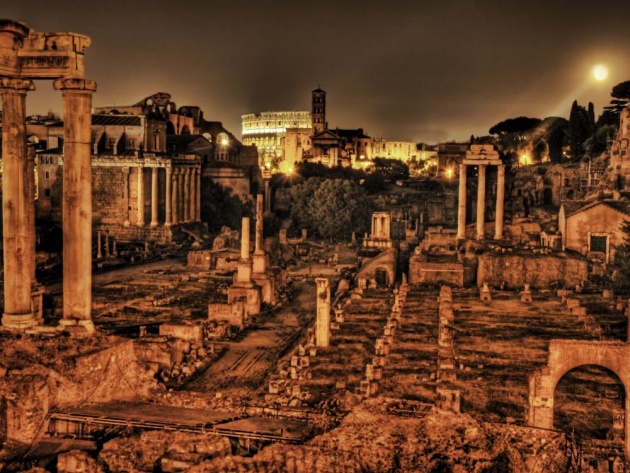
GAIUS VERRES:
Born to a father who was accused of corruption himself,Verreswould grow up to become one of the most abhorrent personifications of the Roman Republic’s depraved final years. He became a financial administrator to a consul, and when civil war broke out he used his power to embezzle military funds. In 80 BCE he joined the staff of Governor DolabellaofCilicia,andindulgedhis passion for works of art by stripping the temples of their paintings and statues for his own collection. When Dolabella stood trial for his extortions, Verres gave evidence to get him convicted and received a pardon for his own crimes as a result.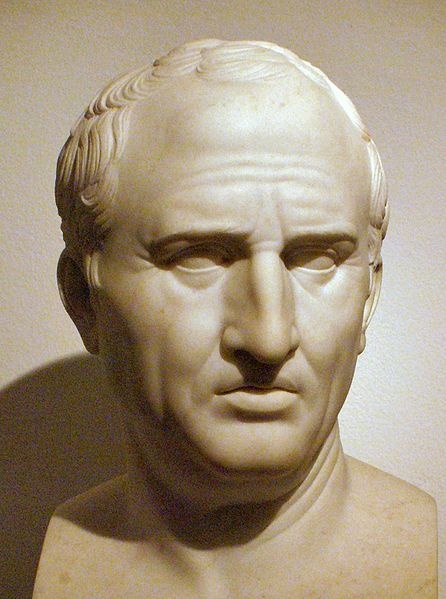
In 74 BCE he was appointed governor of Sicily, a rich and profitable province of the empire. The land had previously enjoyed a relatively peaceful and prosperous history, but Verres’s appointment sent that crashing down. When wealth Sicilians died,Verres would use his corrupt judges to get a slice of the inheritance. If judges refused to comply they were swiftly killed. ordered grand statues to be built in his likeness, abolished a successful agricultural system, thereby throw farmers into abject poverty, and turned a prosperous trading nation into one that struggled to feed its own citizens. His henchmen prow the country for works of art for their master and seized whatever they liked–even brazenly stealing a pure statue of Mercury.
Verres’s luck finally ran out when he was made to return to Rome after the pleas of desperate Sicilian Although he tried to buy his way of his trial, he was ultimately force into exile.
LUCIUS CORNELIUS SULLA:
Born into relative poverty, Sulla was led by his ruthless spirit to become a famed general and eventual dictator of the Roman Empire. Sulla was a beloved general among his troops, but he also had a ruthless and vicious streak that emerged in his ‘proscription’. As soon as he grasped control of Rome, Sulla was determined to purge the land of anyone he perceived as an enemy. The Greek historian Plutarch wrote: “Sulla now began to make blood flow, and he filled the city with deaths without number or limit.”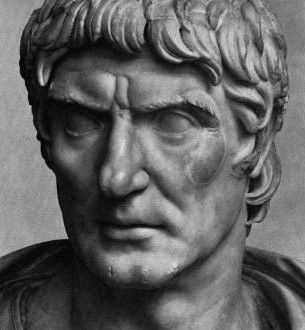
Sulla officially ordered the execution of some 1,500 people, but it is believed that more than 9,000 lost their lives in this brutal purge. A young Julius Caesar only just managed to escape the city. Anyone who dared to shelter a proscribed person would also face death, and the sons and grandsons of the named person were barred from political office. The property of anyone who was executed would be sold off at auction, giving Sulla and his supporters great expanses of wealth.
LOCUSTA OF GAUL:
Growing up in the quiet countryside of Gaul, Locusta learned much about the herbs and plants that grew around her home. Upon moving to Rome, she found her knowledge of herbal lore desired by ambitious men who wished to get rid of their rivals. She began a business as a professional poisoner and made a name for herself. In 54 CE she attracted her most influential patron yet, Empress Agrippa. The wife of Emperor Claudius requested help in killing her husband so her young son, Nero, could claim the throne.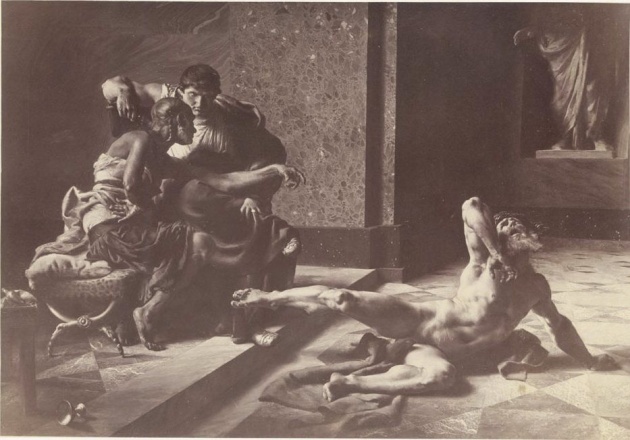
After getting him drunk, they fed him poisoned mushrooms, quickly suffered extreme stomach pains and died. Locusta’s talents were required again when Nero ordered her to poison his stepbrother and rival to the throne, Britannicus. When the boy consumed the poison he went into mad convulsions, but Nero calmly told everyone present that he was epileptic. The dinner party continued and Britannicus died a few hours later.
Nero rewarded Locusta richly for her assistance, lavishing her with a grand villa and luxurious gifts. With the emperor on her side, her skills became so renowned that she set up a school where she bestowed her knowledge on eager students. Locusta even gave Nero a poison kit of his own to use in the event of taking his own life. Unfortunately, when Nero was condemned to death in 68 CE, he forgot the kit and had to use his own dagger. With her most powerful ally gone, Locusta was arrested and led through the city in chains before being executed.
MARCUS PERPENNA VENTO:
When the military faction he belonged to was defeated by Lucius Cornelius Sulla, Perpenna fled Rome with a small army and a wealth of money. With a greedy desire to rule, he decided to wage war against Quintus Caecillius Metellus Pius of the region he had escaped to – Hispania. But Perpenna was a terrible leader and his soldiers soon rebelled against him, demanding to be handed over to Sertorius, the ruler of Hispania. Facing his own death, Perpenna agreed with great humiliation. Still licking his scars, Perpenna could only watch on as Sertorius grew stronger and stronger. Perpenna encouraged the disdain of his fellow nobles and senators, hoping to feed on their jealousy for his own gain. Uprisings and revolts plagued the region, as the popular and eloquent Sertorius struggled to find the source of discontent. When Sertorius won yet another victory, Perpenna invited him to a feast in his honour. The celebration, usually an occasion of much festivity, was specially designed to offend and disgust the famed general. Pushed to breaking point, Sertorius resigned to silently ignoring the humiliation. Perpenna used this opportunity to set his minions upon the unsuspecting guest, slaughtering him before he had a chance to defend himself. Perpenna’s retribution was swift and brutal: faced with the anger of an even more powerful enemy – Pompey – he hopelessly pled for his life, offering all of Sertorius’s papers. Pompey agreed, but when he was given the papers he burned them and executed the betrayer.
SEJANU:
Born into the lower upper social class of the Roman Republic, Sejanus was led by pure ambition and drive to succeed. Slowly but surely Sejanus began to creep closer to Emperor Tiberius, and by 23 CE he held great influence over the decisions of the emperor, with Tiberius referring to his confidant as “Socius Laborum” or “My partner in my toils.”
Sejanus consolidated his power by swiftly eliminating any potential opponents, but his primary target was the emperor’s son, Drusus. The rivalry between the two was no secret, and Drusus had publicly punched Sejanus during an argument, voicing his objection that a “stranger was invited to assist in the government while the emperor’s son was alive.” Sejanus secretly seduced Drusus’s wife and together they slowly poisoned the heir until he died of apparent natural causes in 23 CE.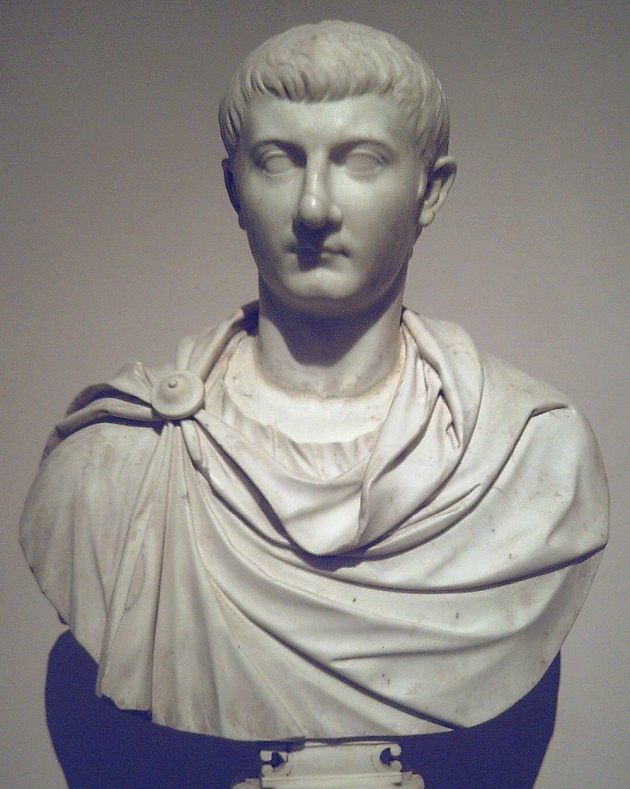
Struck by grief,Tiberius bestowed most of his power to Sejanus.With effective control of Rome, Sejanus led a brutal purge of senators and powerful men. During the purge, Sejanus managed to exile the ambitious widow of Germanius, Agrippina, and two of her sons, who seemingly starved to death.With statues erected in his honour and his rival scrippled by fear and tyranny, Sejanus was Rome’smost powerful man. Tiberius was alerted to the growing threat and summoned Sejanus to a Senate meeting where he was ambushed and arrested. He was strangled and his body cast down the Gemonian stairs of execution, where a riotous mob tore it to pieces.So furious were the people with Sejanus’s deception that they hunted down and killed anyone associated with him.
Ancient Rome’s Most Despicable Characters (P1)
Posted on at



